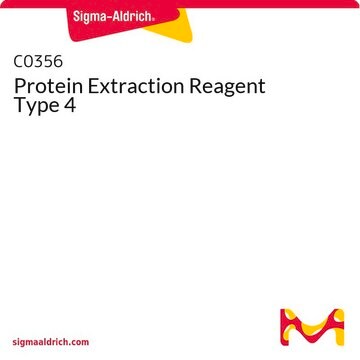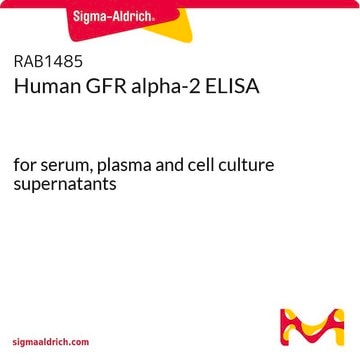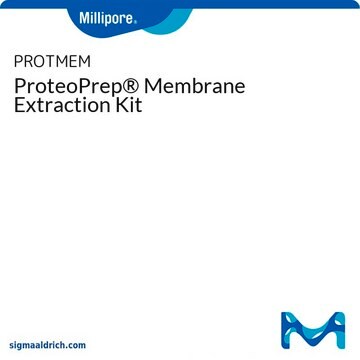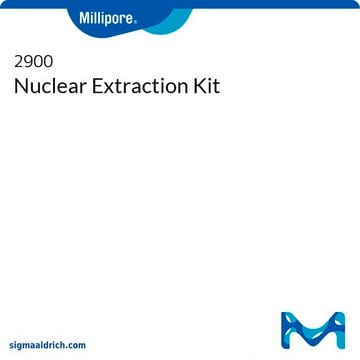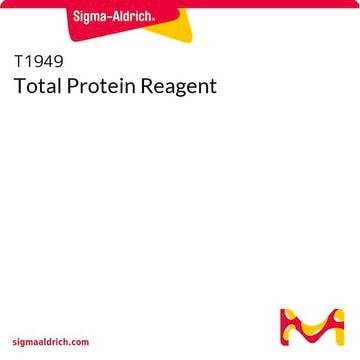A second extraction can be performed and combined with the first to increase protein extracted to about 95% of the total.
PE0230
Plant Total Protein Extraction Kit
Suitable for any plant species or tissue
Synonym(s):
Total Protein Extraction Kit
About This Item
Recommended Products
General description
Following removal of polyphenolics, tannins, and other interfering substances, ground plant tissue, fresh or frozen, is resuspended in the chaotropic reagent. Plant debris is pelleted by centrifugation and the protein extract is collected. The end result is a qualitative total protein sample, ready for downstream proteomic analysis.
Application
Quantity
Signal Word
Warning
Hazard Statements
Precautionary Statements
Hazard Classifications
Acute Tox. 4 Oral - Aquatic Chronic 2 - Carc. 2 - Repr. 2
Storage Class Code
11 - Combustible Solids
Flash Point(F)
185.0 °F - closed cup
Flash Point(C)
85 °C - closed cup
Choose from one of the most recent versions:
Certificates of Analysis (COA)
Don't see the Right Version?
If you require a particular version, you can look up a specific certificate by the Lot or Batch number.
Already Own This Product?
Find documentation for the products that you have recently purchased in the Document Library.
Customers Also Viewed
-
How can I improve my yield when using Product PE0230, Plant Protein Extraction Kit?
1 answer-
Helpful?
-
-
What is the expected protein yield when using Product PE0230, Plant Protein Extraction Kit?
1 answer-
Depending on the tissue used (age, type (leaf, stem, root) health, etc.) one can expect 1-4 mg/mL at about 75-80% of the total protein.
Helpful?
-
-
Will my protein samples be denatured when using Product PE0230, Plant Protein Extraction Kit?
1 answer-
Yes. The chaotropic agents and the detergent in the kit will denature the proteins at least partially.
Helpful?
-
-
What is the Department of Transportation shipping information for this product?
1 answer-
Transportation information can be found in Section 14 of the product's (M)SDS.To access the shipping information for this material, use the link on the product detail page for the product.
Helpful?
-
Active Filters
Our team of scientists has experience in all areas of research including Life Science, Material Science, Chemical Synthesis, Chromatography, Analytical and many others.
Contact Technical Service





